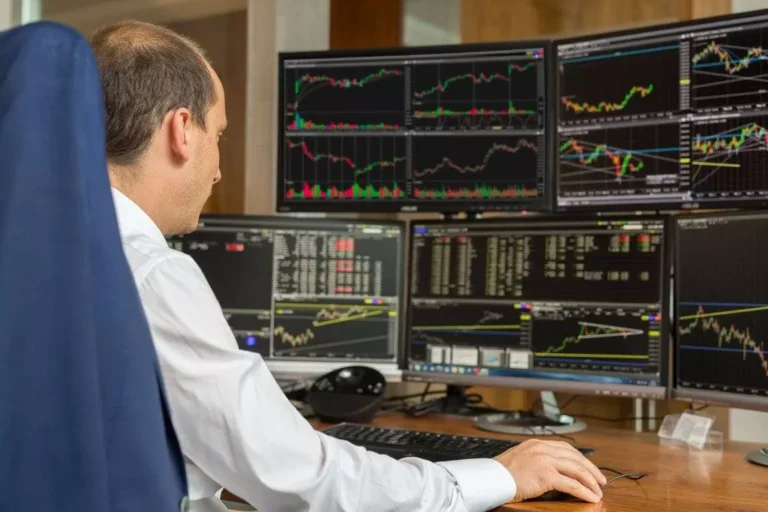Content
It can be used to hedge against currency risk or obtain financing in a foreign currency. At expiration, the buyer and the seller of the derivative https://www.xcritical.com/ contract are obliged to settle the difference in the contract’s value or enter into a new contract. Alexander Shishkanov has several years of experience in the crypto and fintech industry and is passionate about exploring blockchain technology. Alexander writes on topics such as cryptocurrency, fintech solutions, trading strategies, blockchain development and more. His mission is to educate individuals about how this new technology can be used to create secure, efficient and transparent financial systems. Explore the benefits and potential of hybrid crypto exchanges from both trader and broker perspectives to determine if they align with your financial goals.

What is the difference between a security and a derivative?
This price discovery provides information to guide decisions in spot markets by producers and consumers. The derivative market is where derivative contracts are bought and sold through an exchange, rather than the physical assets themselves. Traders enter into derivative positions to gain exposure to the underlying asset spot vs derivatives based on their expectations of future price or value changes. The trader that anticipates correctly profits substantially due to the leverage inherent in derivatives. As a crypto spot trader, you may wonder how you can use futures market data as an indicator to inform your trading decisions. Futures markets are a valuable source of information for traders as they may provide a glimpse into the future price movements of underlying assets.
Unlock Potential. Lock in profits.
Similarly, they can supply their software through prime brokers or Prime of Prime services that consolidate liquidity from multiple pools and channel Smart contract them to the broker. Let’s say an online furniture store in Germany offers a 30% discount to all international customers who pay within five business days after placing an order. Danielle, who operates an online furniture business in the United States, sees the offer and decides to purchase $10,000 worth of tables from the online store.
- Foreign exchange also trades in the spot currency market where the underlying currencies are physically exchanged following the settlement date.
- This means that both current and historical data are required to replicate the margin calculations.
- These can help you mitigate your risk by minimising losses and securing profits.
- Such regulatory arbitrage shifts risks to areas with higher tolerances and more opacity.
- These contracts stipulate the quantity, price, and delivery date of an asset, allowing traders to speculate on or hedge against future price movements.
- This is because crypto derivatives can be highly volatile and risky, and the market is still relatively new and less mature than traditional markets.
- They have become an important source of revenue and profits for large financial institutions like investment banks.
Regulatory Considerations for Spot Contracts
The spot price is the current quote for immediate purchase, payment, and delivery of a particular commodity. This means that it is incredibly important since prices in derivatives markets such as for futures and options will be inevitably based on these values. Spot contracts expose traders to immediate market risks, including price volatility and liquidity risk. Derivative contracts, while also subject to market risks, often include mechanisms for risk management, such as stop-loss orders and margin requirements. The primary difference between spot and derivative contracts lies in their settlement times. Spot contracts are settled immediately, allowing for the quick transfer of assets.

What are the advantages and disadvantages of derivatives?
Unlike traditional brokerage platforms, P2P exchanges entail the interaction between buyers and sellers, while the platform operator gets a cut from the transaction. One of the main benefits of derivatives contracts is that they provide greater flexibility and the chance for more sophisticated trading strategies. In other words, if the market value goes down, that doesn’t necessarily mean you’re making a loss, unlike with Spot trading. Some exchanges will only offer spot trading, others are only derivatives and some exchanges, such as Deribit, support spot trading and both futures and options trading. Another downside is that spot markets cannot be used effectively to hedge against the production or consumption of goods in the future, which is where derivatives markets are better suited.

This makes it easy for companies and investors to enter and exit positions, which improves the overall liquidity in the market. For example, an oil futures contract be for 1,000 barrels expiring in 6 months at a price fixed today. Traders in the derivative market buy and sell derivative contracts based on their expectations of how the price of the underlying asset will change. Buyers hope to profit from rising prices, while sellers aim to benefit from falling prices. Futures market data can provide insight into the direction of future price movements in the spot market. By analyzing market sentiment and trends in futures prices, spot traders may be able to gain an indication of whether prices are likely to rise or fall in the future.
In this way, you can mitigate your risk by gaining some profit and limit your losses overall, without having to close your initial position. Although no asset is bought or sold when a derivative contract is opened, many derivatives may require the physical delivery of the underlying at a specified price on a future date. CFDs are leveraged forms of trading, meaning that you’ll put up a small initial deposit (called margin) to open a larger trade. However, both profits and losses are calculated based on the full position size, not your margin amount, which means both could significantly outweigh your initial deposit.
The leverage and speculation available in derivative markets amplify price volatility. Excessive volatility makes the markets risky and unpredictable, creating instability. High volatility also undermines the price discovery function of derivatives, as prices can change rapidly. The volatile nature of derivatives can discourage some participants, especially hedgers. Options are derivative contracts that give the buyer the right, but not the obligation, to buy or sell an underlying asset at a specified price within a certain time period. The more the price of the underlying asset changes, the higher the potential for profits or losses from a derivative position linked to that asset.
Trading can be carried out on an electronic trading platform or a trading floor. Electronic trading platforms have made trading more efficient, where prices are determined instantaneously, given the large number of trades in some exchanges. These standardized contracts are for the delivery of 1,000 barrels of crude oil with specific grades and at approved delivery locations. Contracts expiring each month, and traders select contracts up to 12 months in advance.
Forward and futures markets instead involve the trading of contracts where the purchase is to be completed at a later date. Both futures and forward derivatives are quite similar since the price of the underlying asset is agreed upon before trading it in the future. Unlike the forward derivative, the futures market is traded on regulated exchanges including Chicago Mercantile Exchange, and New York Mercantile Exchange. However, crypto traders can use exchanges like Binance, Bybit, OKEx, etc., to execute such trades.
This approach is used to avoid the logistical issues involved with physical delivery and delivery locations of the assets, making it more convenient for traders to simply exchange cash. The buyer and seller determine any cash amounts owing on the expiration date of the futures contract. Many companies use derivatives to lock in future prices of commodities or currencies they need to purchase.
These are contracts that give the owner control of the underlying at some point in the future, for a price agreed upon today. Forwards and futures are generically the same, except that forwards are customizable and trade over the counter, whereas futures are standardized and traded on exchanges. A spot contract is a binding agreement to buy or sell an asset at its current market price, with the transaction typically settled within a short timeframe. Unlike derivative contracts, which are based on the future value of an asset, spot contracts involve the immediate exchange of assets between parties. The major types of derivatives include futures, swaps, options, forwards, and cash settlements. Futures are derivative contracts that give the holder an obligation to buy or sell the underlying asset at a specified price at a future date.
Spot trading system scans the order book to find the best price buying price for those who want to buy BTC, ETH and other coins. At the same time, the software matches sellers by finding the best bid for the price of the assets they are willing to sell. While Spot and Derivatives both have their own advantages and disadvantages, it’s useful for a trader to understand both, even if they only trade with one. By intimately understanding both, a trader could gain a trading advantage, as they may get a better insight into the market, and perhaps predict its movement more accurately. Spot trading generally comes with lower risk, which means the potential gains are lower when compared to most kinds of derivatives trading.
